Niger coup sanctions drive Ghana’s onion prices up, deepen food crisis.
“We used to receive at least 20 truckloads of onions daily here,” Akteniba, who speaks for the market’s 200-member onion sellers’ association, told Al Jazeera. “The number of trucks coming here has now dropped to between two and five daily … If things don’t change, most of us will be out of business,” he said.
Read more.
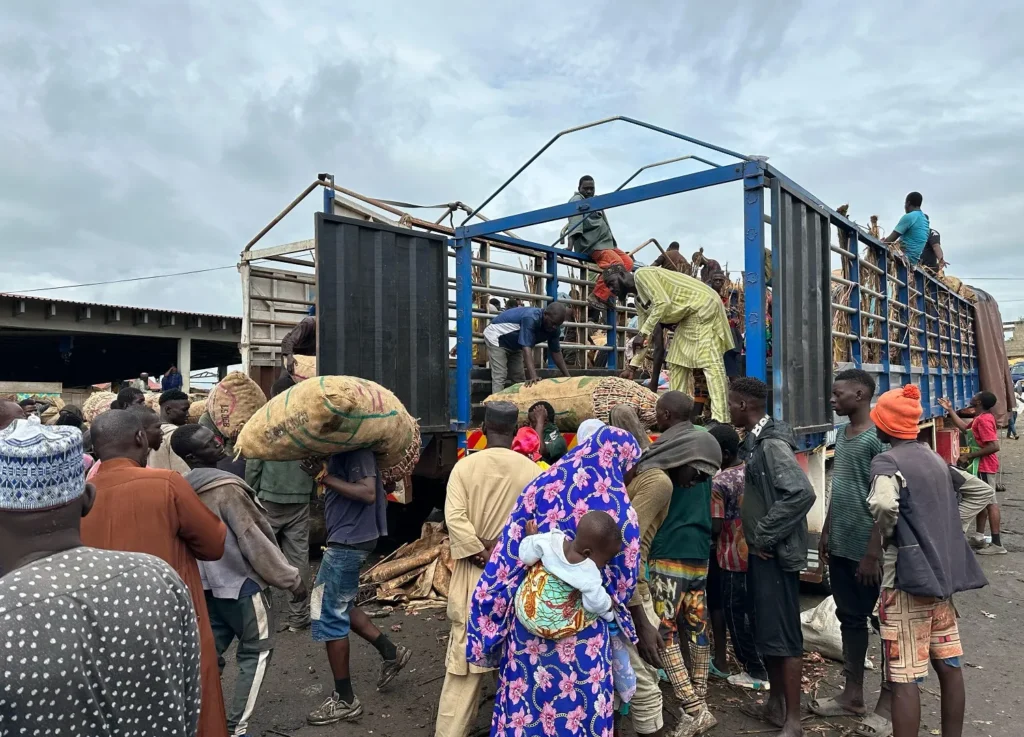
Niger, a key exporter of dry onions in West Africa, is responsible for 70 percent of onion imports.
Accra, Ghana – On most Saturday mornings, the shed of Yakubu Akteniba, an onion seller at Adjen Kotoku market, a 33km drive from Accra, is swamped by customers haggling over fresh produce.
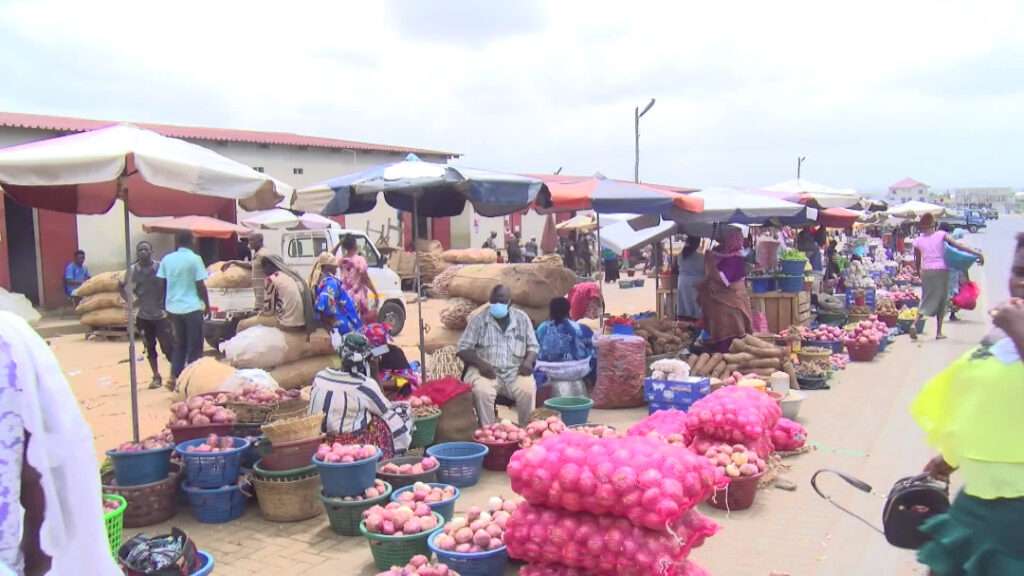
But since early August, things have quietened as business has taken a nosedive due to disruption in the food supply chain across West Africa.
“We used to receive at least 20 truckloads of onions daily here,” Akteniba, who speaks for the market’s 200-member onion sellers’ association, told Al Jazeera. “The number of trucks coming here has now dropped to between two and five daily … If things don’t change, most of us will be out of business,” he said.
The source of the crisis is Niger, four countries away from Ghana, but also a member of the 15-member Economic Community of West African States (ECOWAS).
On July 26, members of the Nigerien presidential guard overthrew Mohamed Bazoum, the country’s democratically elected leader since 2021. In response, ECOWAS imposed a number of sanctions including the closure of borders surrounding Niger – and cut off trade with it.
That decision has stoked a brewing food crisis across West Africa.
Niger is the key exporter of dry onions in the region, responsible for almost two-thirds of total exports in 2021, according to market intelligence platform, Indexbox.
Figures from the Observatory of Economic Complexity (OEC) show that in 2021, Niger exported onions worth $23.4m, making it the world’s 31st largest exporter of onions.

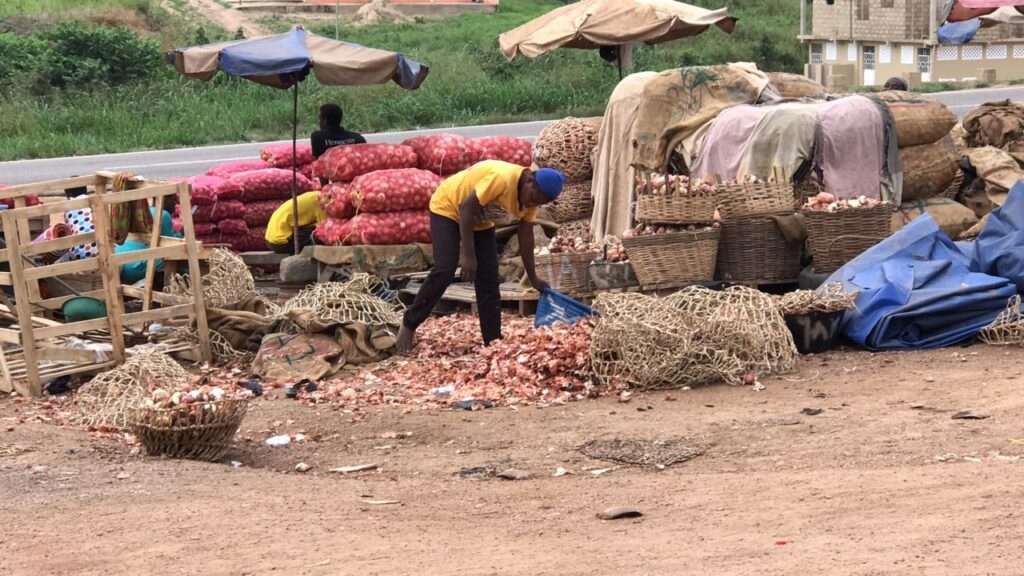

In the same year, onions were the sixth-most exported product for Niger. The main destinations of onion exports from Niger were Ghana ($21.7m), Ivory Coast ($1.15m), Benin ($451,000), Togo ($84,500) and Nigeria ($35,100). All five countries have backed ECOWAS sanctions in Niger.
But the sanctions have triggered a shortage of onions and other food commodities like beans and millet – and driven up the cost in places where supply is still available.
“They [ECOWAS] have blocked the vehicles from coming,” Akteniba told Al Jazeera.
According to Akteniba, before the military takeover, a 100kg sack of onions was selling at $61 but the price has now almost doubled to $105. A 25kg sack of onions now costs $27 compared with $17 before the borders were closed.
Sacks of onions under sheds at the Adjen Kotoku Market in Accra
Sacks of onions under sheds at the Adjen Kotoku market in Accra [Kent Mensah, Al Jazeera]
A beloved vegetable
The bulb-shaped vegetable is revered in West Africa, where many, including Ghanaians, use it as a staple in their cuisines. Onions are boiled, fried, caramelised or even served raw to garnish many meals.
But the cost of onions has become exorbitant as the country’s economic troubles stew; about a quarter of Ghana’s 32 million people live on less than $1 a day, according to the Ghana Statistical Service.
“I love onions but for some time now I am cutting down on the quantity in preparing meals because it is becoming too expensive,” Deborah Biney, a 40-year-old mother of two, told Al Jazeera. “Before the political situation in Niger, I was buying three big pieces of onions for $0.17 in my neighbourhood, but now I use the same amount to buy just a piece.”
Onions also have several health benefits, including improved blood sugar regulation and increasing bone density, experts say.
Patience Naa Adjeley Adjei, a nutritionist and a home economics teacher, told Al Jazeera that the nutritional value of onions could not be underestimated, saying it would be “disturbing” if households stopped using the vegetables due to the soaring prices.
“Onions have a distinct flavour that adds to dishes and stimulate appetite … they are low in calories and fat but rich in vitamins, minerals and antioxidants,” Adjei stated. “They contain fibre, vitamin C and various beneficial compounds that may have health benefits, including anti-inflammatory and anti-cancer properties.”
Nigeria accounts for 20 percent of the onions sold in Ghana, while Burkina Faso exports about 5 percent of the onions consumed there. Ghana only produces 5 percent of the onions it consumes locally.
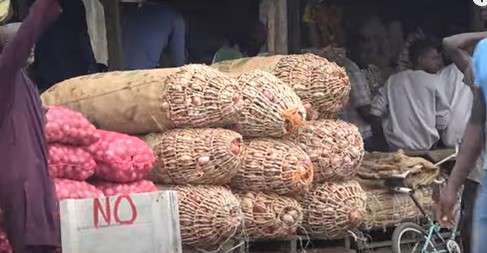

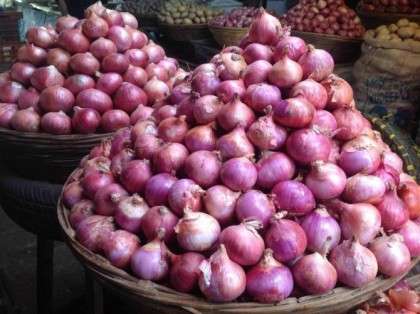
But 70 percent of onions, valued at about $2m weekly, have been imported from Niger, according to Food and Agriculture Minister Bryan Acheampong.
“I deem this an embarrassment and a needless drain on our scarce foreign exchange,” he said recently, at the launch of a government programme to boost Ghanaian food sufficiency.
He added that Nana Akufo-Addo’s administration is finalising an “aggressive five-year plan” to build food security and resilience by ensuring year-round production to halt the importation of essential commodities like tomatoes and onions.
Niger sanctions trigger shortages: Niamey faces basic provision scarcity
Food security
Niger’s military government has refused to release Bazoum and has served notice it wants to remain in power for at least three years before transitioning back to civilian leadership, even in the face of a possible military intervention by ECOWAS.
Experts have warned that if the impasse persists, it could result in dire humanitarian consequences and a food security crisis in the region.
A study undertaken by the United Nations Food and Agriculture Organization (FAO) this April showed that acute food insecurity is on track to reach a 10-year high in West and Central Africa this year as humanitarian assistance is severely hindered by insecurity in conflict-affected areas of Burkina Faso and Mali.
The spread of activities by armed groups in the Sahel is also hindering the food supply chain in the region, the onion sellers’ association said.
“One major issue is attacks on our trucks by terrorists, especially in the Niger area. The coup itself is not affecting the supply of onions and other foods like beans and millet that much, but the state of insecurity,” Peter Appiah Mensah, who owns trucks that cart onions, beans and millets from Niger to Ghana, said.
Speaking to Al Jazeera, Ziad Hamoui, co-chair of the Food Trade Coalition for Africa, said the economic sanctions by the regional bloc on the uranium-rich country, especially the border closure come at a cost.
He called on regional leaders to soften their stance.
“I think it’s still important to maintain the regional trade flows,” said Hamoui, who doubles as president of the Ghanaian chapter of Borderless Alliance, a regional trade advocacy group. “First of all, you can’t really stop trade by blocking the borders. So, closing the borders on one hand, does not solve the issue.
“On the other hand, there need to be policies where countries can be held accountable … we need to have mechanisms in place that allow countries to talk together in cases of complaints and challenges,” he added.
Some of the onion trucks are also stuck behind borders in Burkina Faso, also military ruled and which has allied itself with Mali, to support Niger. In Ghana, vegetable traders are worried that the vegetables might rot and their value depreciate by the time the borders are reopened.

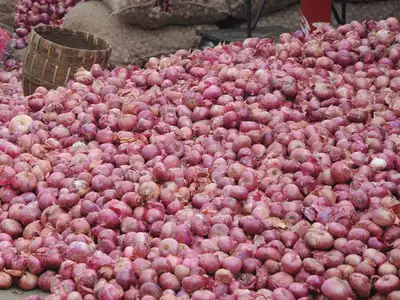
“Maybe, this is a wake-up call for our government to invest more in growing our own onions here in Ghana,” Akteniba told Al Jazeera. “The only problem is that our onions are very small due to the weather but those coming from Niger are bigger. We need to find a solution to this situation.”
SOURCE: AL JAZEERA
Richard Koomson| mediacentralonline.info |Ghana
kindly send us your stories on our WhatsApp line 0500004727






